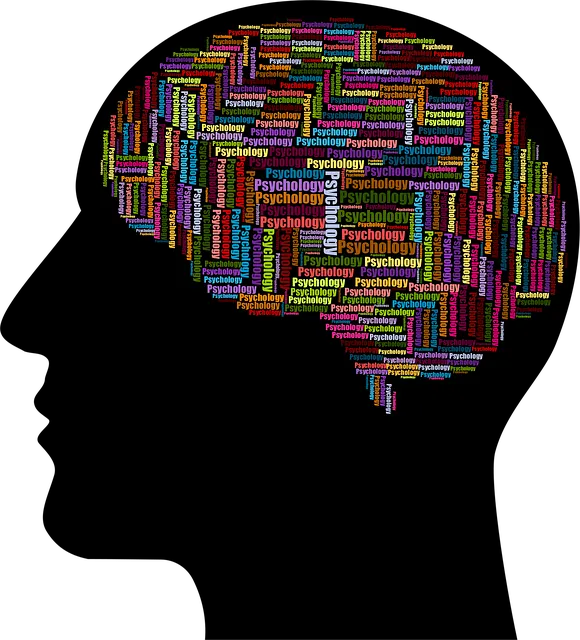In today's urban landscape, mental wellness apps offer 24/7 support for managing stress and anxiety. Major healthcare providers like Kaiser in Broomfield are integrating these apps into their services to enhance access to mental health care, particularly for underserved communities. The Broomfield app is a digital innovation that combines user-friendly features with cultural sensitivity, revolutionizing mental healthcare delivery. It provides tools for mood tracking, meditation, emotional intelligence development, and education, empowering users with proactive mental health management. Regular updates based on user feedback and research keep the app relevant and effective.
Mental wellness apps have emerged as powerful tools, offering accessible and convenient support for individuals seeking better cognitive health. With a growing demand for on-demand therapy, this article explores the development of such applications, focusing on their potential to revolutionize mental healthcare access. We present a case study of Broomfield, where Kaiser’s digital services bridge the gap in mental health care, and outline key features that contribute to successful app creation. Additionally, we guide developers through the process, highlighting considerations for ensuring positive user outcomes.
- Understanding the Need for Mental Wellness Apps
- Broomfield: A Case Study in Accessing Mental Health Services via Kaiser
- Key Features of an Effective Mental Wellness App
- Development Process and Considerations for Success
Understanding the Need for Mental Wellness Apps

In today’s fast-paced world, mental wellness has become a paramount concern for individuals across various demographics, including those affiliated with major healthcare providers like Kaiser in Broomfield. The demand for accessible and convenient mental health services is higher than ever before, as people seek tools to navigate stress, anxiety, and other emotional challenges. This need is especially pronounced in urban areas where hustle and bustle can contribute to feelings of isolation and overwhelm. Mental wellness apps offer a promising solution by providing 24/7 support and guidance directly to users’ smartphones, bridging the gap between traditional therapy and immediate assistance.
By leveraging technology, mental wellness apps enable individuals to take charge of their emotional well-being through various features such as journaling exercises, mindfulness guidance, and risk assessment tools designed for at-home use. These applications cater to a wide range of user needs, from tracking mood patterns to accessing evidence-based practices that foster emotional regulation. For instance, Kaiser in Broomfield has recognized the value of these apps and is exploring ways to integrate them into their services, thereby enhancing how patients get mental health services through their existing healthcare network.
Broomfield: A Case Study in Accessing Mental Health Services via Kaiser

In the vibrant landscape of mental wellness app development, case studies like Broomfield offer valuable insights into how technology can democratize access to mental health services. Located within the bustling metropolis of Kaiser, Broomfield has successfully navigated the complex tapestry of providing mental healthcare to a diverse population. The app, designed with both cultural sensitivity and trauma support services in mind, serves as a testament to how digital innovations can enhance Mental Health Awareness, especially among underserved communities.
By integrating user-friendly features, the Broomfield app ensures that individuals who might otherwise face barriers to accessing traditional mental health services can now connect promptly with necessary resources. This case study underscores the potential of technology in revolutionizing mental healthcare delivery, making it more inclusive and accessible. Specifically, the app caters to diverse cultural needs, ensuring that mental health support is not just available but also tailored to address unique challenges faced by various demographics.
Key Features of an Effective Mental Wellness App

An effective mental wellness app should offer a comprehensive suite of features designed to support users’ mental health and well-being. Key components include access to professional therapy services, such as those provided by Kaiser in Broomfield, allowing individuals to connect with licensed therapists for personalized counseling. These platforms often incorporate tools for Depression Prevention, like mood tracking, meditation exercises, and cognitive-behavioral techniques, empowering users to manage their mental health proactively.
Additionally, integrating features that foster Emotional Intelligence can be transformative. Apps may include resources for understanding and managing emotions, improving communication skills, and building resilience. Mental Health Education Programs, tailored to specific concerns or demographics, are another valuable aspect. Well-designed interfaces that provide accessible, evidence-based information on various mental health topics can educate users and reduce the stigma associated with seeking help.
Development Process and Considerations for Success

The development process for a mental wellness app should be meticulous and considerate of various factors to ensure its success in helping users navigate their mental health journeys. Firstly, understanding the target audience is paramount. Different demographics may have varying needs; thus, tailoring features and content to cater to diverse user profiles is essential. For instance, a Broomfield-based organization like Kaiser can utilize this app to facilitate access to mental health services, offering tailored support for its members through integrated workshops and resources.
Additionally, incorporating evidence-based Stress Management Workshops Organization techniques and integrating them with user-friendly interfaces will enhance the app’s effectiveness in promoting Mental Wellness. Stress Reduction Methods, such as mindfulness exercises and cognitive-behavioural therapy (CBT) techniques, can be incorporated to empower users with tools to manage their mental health proactively. Regular updates based on user feedback and evolving research will ensure the app remains a valuable tool for those seeking support through digital means.
Mental wellness apps have emerged as powerful tools, offering accessible and convenient support for individuals seeking improved mental health. As demonstrated by the case study of Broomfield and its collaboration with Kaiser, these applications can significantly enhance service reach and engagement. By incorporating key features such as personalized therapy sessions, mood tracking, and community forums, developers can create effective solutions that cater to diverse user needs. The development process involves careful consideration of ethical guidelines, data privacy, and seamless user experiences, ensuring these apps become valuable assets in the digital landscape for managing mental wellness.






